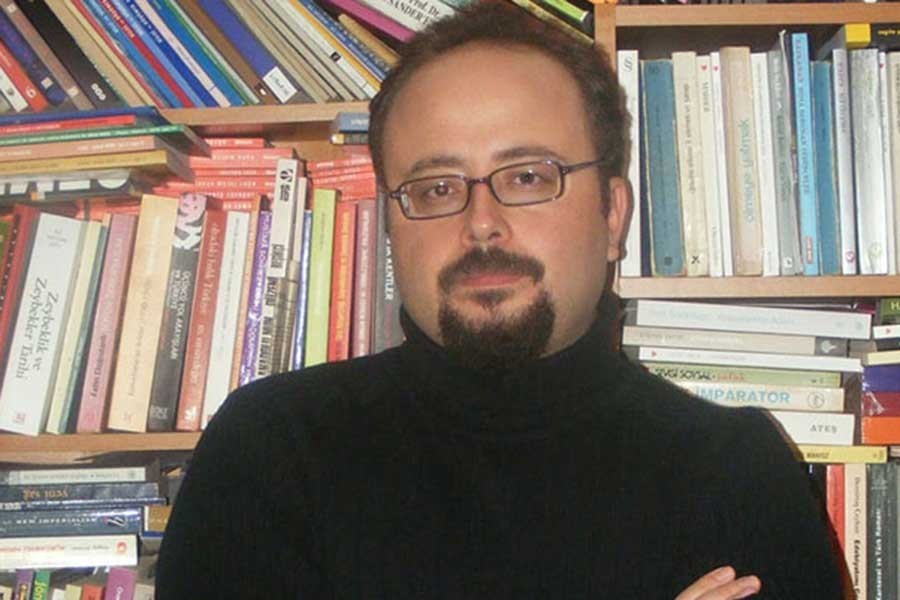‘Reaction towards the presidential system of government cannot be concealed behind closed doors’
We spoke to Associate Professor Dr Deniz Yıldırım about debate over the presidential system of government in Turkey.

Fotoğraf: Evrensel
Birkan BULUT
Ankara
Debate continues over the single-man regime following the defeat the ruling party suffered in the last elections. No sooner had he returned from Japan than President Tayyip Erdoğan assembled members of parliament and tried to put a halt to debate about the presidential system of government. Prior to the meeting, AKP Deputy Group Chair Naci Bostancı also said there was nothing to warrant exaggeration about revision discussions. Fielding my questions, Associate Professor Dr Deniz Yıldırım spoke of increasing antipathy towards the presidential system of government and said this antipathy could not be concealed behind closed doors.
Deniz Yıldırım also noted that the debate over the direct parliamentary system and the single-man regime had muddied the waters over the issue. He stressed the need for a process that was not simply restricted to system change and also encompassed constitutional change in the matters of fundamental rights and freedoms. Yıldırım commented, “A system that simply assigns roles to state institutions, the legislature, executive and judiciary can easily be monopolized. Components such as popular participation need to be brought in. Mechanisms that ensure popular participation in government outside election times must be set up.”
Deniz Yıldırım said the ruling party had seen the popular antipathy towards the single-man regime following the 31 March local elections and especially the rerun Istanbul elections on 23 June. Pointing to the absence of big change in an economic and social sense in the short time between the two elections, Yıldırım said the antipathy towards the ruling party’s policies and the single-man regime had made itself clearly felt in the rerun Istanbul election. Stating there was no chance for the ruling party to ignore this, he said, “Even if Erdoğan assembled members of parliament and the cabinet immediately on his return to Turkey and the issue was discussed behind closed doors, this shows that it cannot be concealed. There is also internal unease in the AKP over the new party initiatives. The Ali Babacan and Ahmet Davutoğlu teams are also bringing in debate over the system. At the same time, the AKP says with reference to the new party initiatives, ‘We are making system change anyway so why are you leaving? Voice your objections here.’”
TIBA’S REACTION IS SYMBOLIC
On the issue of capitalist circles’ approach to debate about the system, in turn, Yıldırım said the Turkish Industry and Business Association (TIBA) had not engaged in efforts like reports and proposing models to public opinion as in the past. Indicating that the ruling party’s pressure had been influential in this, Yıldırım noted, “They are trying to make a distribution of tasks whereby capital’s business is the economy and the ruling party’s business is politics. The impression is given of there being a distinction between the economy and politics but this is not so. I think TIBA’s reactions to the new system are symbolic.”
A REFERENDUM WILL NOT BE EFFICACIOUS WHEN THERE IS ELECTION-INSPIRED ANTIPATHY
Stating that the opposition would regard even a tiny change to the presidential system of government with the strength not to compromise and to engage in playmaking, Yıldırım opined that the ruling party would be seen to have to embark on change when faced with the demands of the opposition fresh from local election victory. Stating on the other hand that the mooting of a direct referendum was ill conceived, Yıldırım said, “This is because the citizenry is election weary. There is great antipathy towards elections being rerun and the ruling party going to the polls rather than thinking about the people’s real problems. In such an environment in which there is election-inspired antipathy towards the ruling party, I do not think a referendum will be efficacious in the short term.”
WAS THERE NO AUTHORITARIANISM WHEN ERDOĞAN WAS PRIME MINISTER?
Saying that many parties inside and outside parliament had reached an understanding on undertaking change to the presidential system, Yıldırım commented, “There remains nothing but Erdoğan’s fragmented AKP and Bahçeli’s MHP at its side. Objection of such magnitude to the system having emerged, it is imperative for commissions to be set up in parliament, fresh constitutional debate with widespread participation to be held and a new social contract with additional contribution by public opinion to be created. If a referendum is to be held today what is it to be held on? What is to be the replacement? There is a need for a process that is not simply restricted to system change and also encompasses constitutional change in the matters of fundamental rights and freedoms. I think debate over the direct parliamentary system and the single-man regime muddies the waters over the issue. Was Turkey not governed in an authoritarian manner at the time when Erdoğan was prime minister? Were many people not silenced through trials? There is a need to object to the monopolistic accumulation of powers rather than the name of the system. A system that simply assigns roles to state institutions, the legislature, executive and judiciary can easily be monopolized. Components such as popular participation need to be brought in. Mechanisms that ensure popular participation in government outside election times must be set up.”
(Translated by Tim DRAYTON)
Forwarding to the next article...
10 seconds remaining



Follow Evrensel